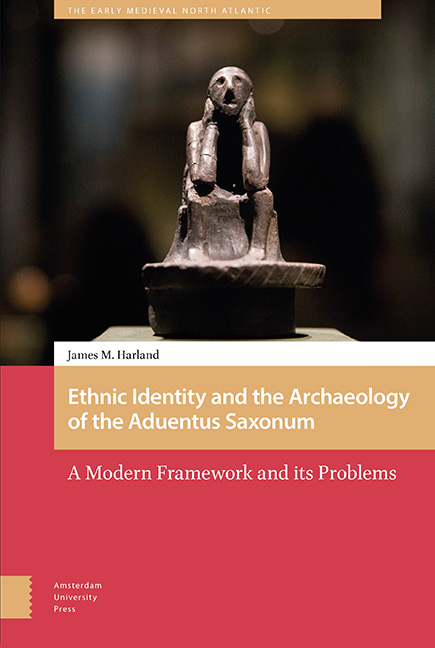Book contents
- Frontmatter
- Dedication
- Table of Contents
- List of Tables and Figures
- Acknowledgements
- 1 Introduction
- 2 Ethnicity and Archaeology
- 3 Empiricism and Metaphysics
- 4 Deconstructing Anglo-Saxon Archaeology
- 5 The Material Evidence Reconsidered
- 6 Building an Alternative
- 7 New Approaches and Final Reflections
- Appendix: Spong Hill Data
- Bibliography
- Index
5 - The Material Evidence Reconsidered
Published online by Cambridge University Press: 16 December 2021
- Frontmatter
- Dedication
- Table of Contents
- List of Tables and Figures
- Acknowledgements
- 1 Introduction
- 2 Ethnicity and Archaeology
- 3 Empiricism and Metaphysics
- 4 Deconstructing Anglo-Saxon Archaeology
- 5 The Material Evidence Reconsidered
- 6 Building an Alternative
- 7 New Approaches and Final Reflections
- Appendix: Spong Hill Data
- Bibliography
- Index
Summary
Chapters 3 and 4 created a philosophical foundation upon which to base a discussion of alternatives to the ethnic paradigm in early Anglo-Saxon archaeology. Most significantly, this philosophical foundation recognised that empiricism encounters certain limits in its claim to assert truth about given phenomena, ultimately forcing a non-empirical interpretative leap in any given act of analysis. Be this as it may, archaeologists make use of very large bodies of data to make assertions about the past, including assertions about the presence (or absence) of ethnic phenomena in the material record. Often, an accusation of insufficient appraisal of data is the retort made to criticisms of ethnic analyses of material culture, or, as we have seen, data is itself harnessed as a tool to dispute the existence of ethnic identity in the relevant period. This chapter therefore explores the empirical bases upon which claims for the presence or absence of ethnic phenomena in early ‘Anglo-Saxon’ archaeology are founded, pushing these to their limits to demonstrate how far empirical analysis may actually take us in pursuit of such goals. The chapter first opens with two key critical issues that shape interpretative approaches to the aduentus Saxonum and ethnic expression in lowland Britain more generally: the nature and scale of the aduentus Saxonum, and the cause and nature of Roman Britain's collapse. These are examined because they have been formative in the interpretations of the available empirical evidence. The second section summarises the present state of that evidence, and is organised by the types of evidence brought to bear, beginning with the use of biological material, which may be viewed as a chronological bookend, being both one of the earliest means of identifying ethnicity in the professionalised discipline (in the form of phrenology, skeletal stature, etc.), and also, ironically, one of the latest (in the form of stable isotopes and mitochondrial/Y-chromosome DNA). The chapter then examines attempts to infer ethnicity from patterns of stylistic change, before finally examining attempts to infer ethnicity from the sorts of artefacts that such stylistic patterns are found on. Finally, the chapter performs a case study of Gerrard's recent use of these putatively empirical foundations, to argue for the presence of ‘Germanic’ ideology in late fifth-century Britain.
- Type
- Chapter
- Information
- Ethnic Identity and the Archaeology of the aduentus SaxonumA Modern Framework and its Problems, pp. 159 - 194Publisher: Amsterdam University PressPrint publication year: 2021



